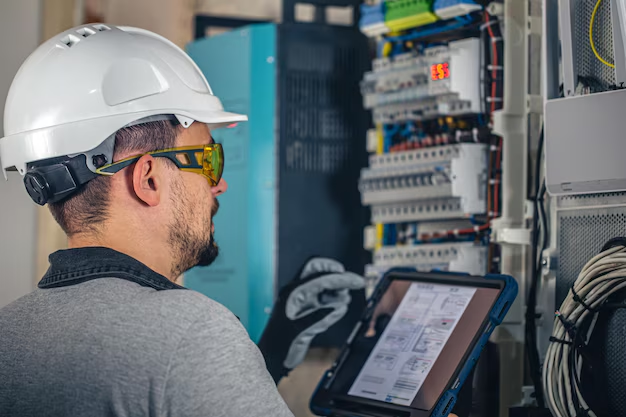Want to Become a Licensed Electrician? Here's Your Step-By-Step Guide
Embarking on a career as an electrician opens doors to a world of opportunities, but to get started, you'll need a license. Whether you're drawn to the field for its hands-on nature, job stability, or competitive pay, understanding the process of becoming a licensed electrician is crucial. Here’s a concise guide to help you illuminate your career path.
Understanding the Basics of Electrician Licensing
Before you plug into this electrifying career, it's essential to know the requirements that vary by state. Most states require candidates to fulfill educational prerequisites, gain practical experience, and pass licensing exams.
Step 1: Educational Foundation
A high school diploma or GED is typically the first step. Courses in math, physics, and technical drawing can give you a solid grounding. Next, consider enrolling in a vocational school or community college program focused on electrical technology. These programs offer foundational knowledge about electrical systems, circuitry, safety practices, and the National Electrical Code (NEC).
Step 2: Apprenticeship
Securing an apprenticeship is a critical phase. Often lasting 4 to 5 years, an apprenticeship combines classroom instruction with on-the-job training under the supervision of a journeyman or master electrician. Apprenticeships can be found through trade schools, unions, or direct employment with electrical contractors.
Step 3: Licensure Examination
Upon completing your apprenticeship, you'll likely need to pass a state-specific licensing exam. The exam usually tests knowledge of electrical theory, NEC, and local codes. Preparation courses or study guides can be immensely beneficial.
Beyond Licensing: Financial Support and Opportunities
Pursuing an electrician's license isn’t without cost, but there are financial aid options to ease the burden. Consider these opportunities:
Government Aid and Grants
- Federal Pell Grant: Aimed at students with exceptional financial need and available to undergraduate students.
- State-Sponsored Grants: Many states offer grants that specifically cater to individuals pursuing vocational training. Check your state's education department for available options.
Scholarships and Loans
- Trade-Specific Scholarships: Organizations like the Electrical Association provide scholarships to those pursuing electrical careers.
- Student Loans: Federal and private options can help cover costs. Consider loans with competitive interest rates and flexible repayment options.
Additional Financial Resources
Transitioning into the electrical field can also benefit from exploring options that manage student expenses:
- Debt Relief Programs: If you're concerned about current debt, look into consolidation or forgiveness programs that cater to vocational training costs.
- Credit Counseling Solutions: Understanding how to manage debt responsibly can help maintain financial health while you pursue your license.
Illuminating Your Future
The path to becoming a licensed electrician is charged with the promise of a fulfilling career. With the right approach and resources, you can navigate the journey smoothly and emerge ready to light up your professional world. Here’s a handy table to outline key programs and resources to simplify your financial journey.
Financial Assistance and Educational Opportunities:
- 🎓 Pell Grant: Need-based, supports vocational training
- 📚 Trade Scholarships: Funds specifically for aspiring electricians
- 💡 State Grants: State-specific financial aids for trade education
- 💰 Student Loans: Federal and private, for covering educational expenses
- 🔗 Debt Relief Programs: Options for managing and consolidating debt
- 🧾 Credit Counseling: Assists in financial planning and debt management
Harness these resources confidently, and soon you’ll find yourself expertly navigating the circuitry of not just systems, but a rewarding career in the electrical industry.

